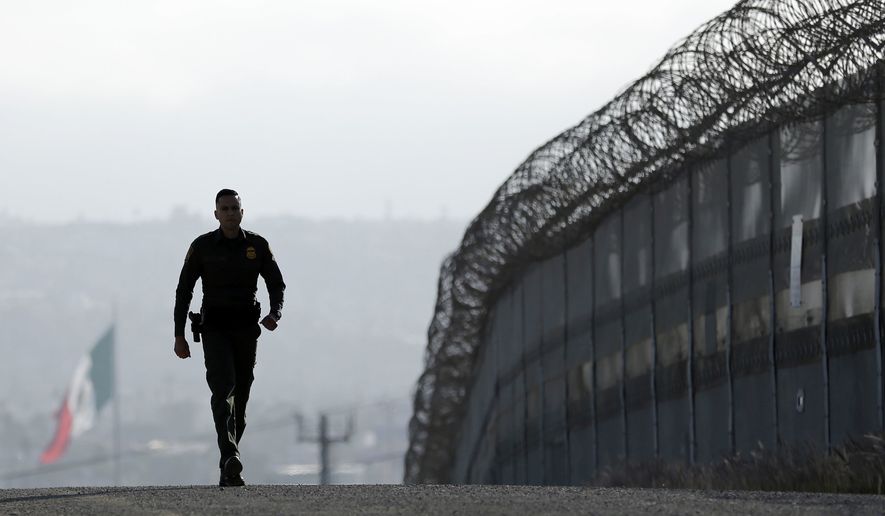The Western Hemisphere’s human rights watchdog said Tuesday it will try to stop President Trump’s immigration plans, accusing him of fostering an “enormous human rights crisis” by trying to detain and quickly deport more illegal immigrants.
The Inter-American Commission on Human Rights, an arm of the Organization of American States, held two hearings to draw attention to Mr. Trump’s new executive orders on immigration, at the behest of advocacy groups who said mothers and children are being stranded in dangerous conditions because the U.S. won’t let them in.
But the commissioners struggled with what, exactly, they can do to stop Mr. Trump, beyond holding hearings, issuing press releases and reports and, perhaps, making visits to the border.
“No way can the commission accept these acts of violations which are occurring, and which seem to be multiplying and becoming more and more serious,” said Margarette May Macaulay, first vice president of the IACHR.
The first hearing Tuesday was specifically on Mr. Trump’s new plans, while the second looked at illegal immigrants who come to the U.S. requesting asylum, claiming they are endangered back home.
Officials in both the Obama and Trump administrations have said illegal immigrants appear to have been coached on “magic words” they could use to lodge asylum claims, earning a foothold in the U.S. while their cases proceed.
But advocacy groups Tuesday said worthy asylum candidates are being turned away.
Nicole Ramos, an immigration lawyer, described shepherding dozens of asylum seekers to the San Ysidro border checkpoint over the last 16 months, and said she witnessed officers try to discourage them from attempting to enter.
“I urge the commission to hold the United States accountable. Please do not allow them to get away with this,” she said.
Mr. Trump, in his first week in office, issued two executive orders calling for stiffer border security and a revamping of enforcement from the interior of the U.S.
Among those were expanding the list of priorities that make someone good targets for deportation according to the law, expanding detention capabilities so illegal immigrants can be held rather than released, and proposing that migrants who cross the U.S.-Mexico border be sent back to wait in Mexico while their cases proceed in the U.S.
Human-rights advocates told the commission Tuesday that would consign needy people to perilous territory.
They found a very sympathetic ear.
“We have a massive inhuman situation to deal with and we need all the help we can get,” Ms. Macaulay said. “You have to keep feeding us information.”
The Trump administration declined to send a representative to defend against the charges, leaving commissioners dismayed. They left an empty seat to signify the U.S. absence.
State Department spokesman Mark Toner said that while the U.S. respects the commission’s role, ongoing court cases challenging Mr. Trump’s orders made it “not appropriate” to defend the policies in the commission setting.
“The commission regularly holds hearings on challenging issues faced by OAS member states and the United States participates whenever possible. The United States informed the IACHR of our inability to attend these particular hearings,” Mr. Toner said.
The American Civil Liberties Union called the no-show “a new low” in disrespect for international norms.
“Refusing to engage with the commission is an isolationist policy that mirrors the behavior of authoritarian regimes and will only serve to embolden them,” said Jamil Dakwar, director of the ACLU’s human rights program.
During the hearing the ACLU also asked the commission to review whether Mr. Trump was violating human rights by speeding up pipeline construction projects, such as the Dakota Access Pipeline that would carry crude oil from North Dakota to Illinois.
ACLU lawyers said Native Americans’ rights are at stake in the clash over the pipeline, and begged the IACHR to step into the fight.
• Stephen Dinan can be reached at sdinan@washingtontimes.com.




Please read our comment policy before commenting.